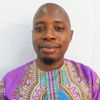Measuring Internet Censorship in Nigeria
Evidence of Internet Policy Advocacy in Africa
By Babatunde Okunoye, Maria Xynou, Leonid Evdokimov, Sodiq Alabi, and Chukwuzitere Okoli
IEEE Internet Policy Newsletter, December 2018
Discuss this topic on Collabratec:
Over the past decade, Africa has witnessed increased government censorship of the internet, including internet shutdowns, social media app shutdowns and website blockages[1]. Advocates against internet censorship in Africa are often hindered in their advocacy work by a lack of technical evidence during incidents of censorship. This need for technical evidence potentially opens the door for collaboration between scientists, engineers, and human rights defenders[2].
In October 2017, Nigeria’s National Communications Commission (NCC) reportedly ordered the blocking of 21 websites. In response, Paradigm Initiative collaborated with the Open Observatory of Network Interference (OONI) to test those websites and collect network measurement data that can shed light on whether and how they were blocked.
This paper summarizes the findings pertaining to the testing of these websites based on our analysis of all OONI network measurements collected from Nigeria over the last year. OONI, a part of the Tor project[3] working for a free and open internet, develops free and open source software, open methodologies, and open data enabling the independent verification of findings and the reproducibility of this study.
Testing websites
OONI’s Web Connectivity test is designed to measure whether access to websites is blocked by means of Domain Name System (DNS) tampering, Transmission Control Protocol/Internet Protocol (TCP/IP) blocking, or by a transparent Hyper Text Transfer Protocol (HTTP) proxy.
Most web connectivity measurements in Nigeria have been collected from mobile networks, primarily testing the websites included in the Citizen Lab’s global test list. OONI data shows that most websites tested in Nigeria over the last year have been accessible. The accessible sites include popular media websites, human rights sites, communications platforms, circumvention tool sites, and even more provocative or objectionable sites, such as pornography and gambling sites.
In November 2017, however, Paradigm Initiative reported that Naij, a popular news outlet, and 20 other websites were blocked. Following this report, OONI shared an OONI Run link on social media, encouraging locals in Nigeria to test those sites. Out of the 21 websites Paradigm Initiative reported to be blocked, only 17 of them were tested (excluding biafra.net, biafra.com, biafra.club, and restoringbiafranationhood.info).
Biafraforum.com was accessible, while 16 sites were found to be blocked by means of DNS tampering in November 2017 (Appendix A).
OONI data (linked above) corroborates Paradigm Initiative’s report on the blocking of those websites. It’s worth highlighting though that the above sites were only tested once on 22 November 2017 in the MTN (AS29465) network.
In recent months, the 21 sites that were reported to be blocked in November 2017 have been tested again. The table below summarizes OONI findings from more recent testing (April 2018).
|
Domains |
Globacom (AS37148) |
MTN (AS29465) |
Airtel (AS36873) |
|
naij.com |
|||
|
igbofocus.co.uk |
|||
|
ipobgovernment.org |
|||
|
biafraland.com |
N/A |
||
|
biafraradio.com |
N/A |
||
|
biafranet.com |
|||
|
thebiafrastars.co |
|||
|
biafrainc.com |
|||
|
gobiafra.com |
|||
|
biafra.info |
|||
|
biafranigeriaworld.com |
|||
|
ekwenche.org |
|||
|
ustream.tv/channel/biafra-television |
|||
|
biafrasay.com |
N/A |
||
|
bafmembers.com |
|||
|
thebiafrapost.com |
|||
|
biafraforum.com |
|||
|
biafra.net |
N/A |
||
|
biafra.com |
|||
|
biafra.club |
N/A |
||
|
restoringbiafranationhood.info |
N/A |
The 21 websites were supposedly blocked because they hosted content supporting the secessionist movement of Biafra in Nigeria.
What’s noteworthy from the above table is that Nigerian internet service providers (ISPs) appear to be quite consistent in the types of censorship techniques that they adopt. Globacom appears to primarily block sites by means of TCP/IP blocking, MTN by means of DNS tampering, and Airtel always appears to block sites at the HTTP layer. The measurements that show “generic timeout errors”, “DNS lookup errors” and “connection errors” present signs of network anomalies, but do not necessarily serve as evidence of internet censorship, since they may have occurred due to transient network failures. While Globacom, MTN, and Airtel appear to consistently block the same sites on the same dates, it’s worth noting that Airtel did not block two sites (ustream.tv and bafmembers.com) that appear to have been blocked by Globacom and MTN.
Another interesting pattern that we see in the measurements is that Nigerian ISPs appear to be using reserved (and historically unrouted) IP addresses, such as 192.0.0.1 and 1.1.1.1, as the spoofed DNS response. This technique seems to be used by MTN which resolves blocked domains to 192.0.0.1, and by Airtel, which resolves blocked domains to 1.1.1.1. This could be due to the fact that resolving blocked domains with unrouted IP addresses leads to clients not generating any extra traffic (and potentially overloading their networks) when accessing blocked domains. It’s worth noting, however, that the 1.1.1.1 IP address is actually no longer an unrouted IP address and is now being used for the CloudFlare DNS resolver.
Block pages are essential for confirming censorship events with accuracy, according to OONI’s methodologies[4]. Given that Nigerian ISPs do not appear to serve block pages (at least for none of the tested websites), our confidence in confirming the potential censorship events outlined in the above table is quite limited. When blockpages are not served, OONI relies on analyzing large volumes of network measurements collected over an extended period of time (to identify whether censorship patterns are persistent and to better rule out false positives). The latest measurements, however, were collected on 25 April 2018, while the sites that were initially identified as blocked in November 2017 weren’t tested in the interim leading up to 24 April 2018, limiting our ability to identify censorship changes.
Nonetheless, the measurements collected for the testing of the 21 sites strongly suggest that many of them have been blocked, primarily due to the following reasons:
- Only (20 out of 21) sites that have been reported to be blocked present signs of network interference. All other tested websites (including provocative or objectionable sites) were found to be accessible.
- These sites presented signs of network interference across three ISPs, not just one. This helps rule out the hypothesis that the anomalies could have occurred due to an unreliable network.
- The types of network anomalies (TCP/IP blocking, DNS tampering, HTTP blocking) were (mostly) consistent per ISP, suggesting that specific censorship techniques were adopted. If the network anomalies had occurred due to transient network failures, DNS misconfiguration, or other reasons, they probably wouldn’t persist in the same way.
The internet in Africa is a hotly contested space[5], as political and commercial interests strive to control this space, oftentimes to the detriment of human rights such as freedom of expression, freedom of association, and privacy. In 2018 for instance, there have been internet disruptions in Ethiopia, Mali, Democratic Republic of Congo, Sierra Leone, Cameroon, and Chad, typically during political events. In this regard, as Nigeria approaches its February 2019 general elections, we will continuously test for evidence of censorship online. Our work as advocates for human rights online is strengthened by technical evidence of Internet censorship events and demonstrates the utility of scientists and engineers in the defense of human rights online.
References:
[1] B. Warf, ‘’Geographies of global Internet censorship’’, GeoJournal, vol 76, pp. 1 - 23, 2011.
[2] T Harris (2016). ‘’Scientists and Engineers as Partners in Protecting Human Rights’’. openDemocracy [online] Available: https://www.opendemocracy.net/openglobalrights/theresa-harris/scientists-and-engineers-as-partners-in-protecting-human-rights
[3] The Tor Project (2018). [online] Available: https://www.torproject.org/
[4] The Open Observatory of Network Interference (2017). “Methodology: The State of Internet Censorship in Indonesia”. [online] Available: https://ooni.torproject.org/post/indonesia-internet-censorship/#data-analysis
[5] A. Humphrey and K. Byenkya (2017). ‘’Here’s how we can protect Africa’s Internet Freedom’’. World Economic Forum [online] Available: https://www.weforum.org/agenda/2017/11/here-s-how-we-can-protect-africa-s-internet-freedom
Appendix A: List of websites blocked in Nigeria, November 2017.
Ekwenche.orgUstream.tv/channel/biafra-televisionBiafrasay.com
Bafmembers.com
 Sodiq Alabi
Sodiq Alabi
Sodiq Alabi is the Communications Lead for Paradigm Initiative. He has a degree from the University of Ilorin Nigeria where he began his journalism and communications career as a student journalist. He has an interest in media freedom, media activism and Internet censorship circumvention, and has trained journalists and activists working in repressive environments on digital safety and digital activism, the latest being in Cameroon.
 Chukwuzitere Okoli
Chukwuzitere Okoli
Chukwuzitere Okoli received his Bachelor’s Degree in Computer Science in 2016 from Babcock University Nigeria. He is a Microsoft Certified Professional (MCP) and Microsoft Certified Technology Specialist (MCTS), who is Skilled in Hardware and software troubleshooting, Web Development, Custom CMS Development and Web Applications. He is currently a Microsoft Intern4afrika Intern at Paradigm Initiative where he serves as the Technical Support Engineer. He is also interested in Cybersecurity and Internet Freedom.
 Maria Xynou
Maria Xynou
Maria Xynou works with the Open Observatory of Network Interference (OONI), where she manages partnerships and research on Internet censorship around the world. Previously, Maria worked with various other digital rights organizations, such as the Tactical Technology Collective and India's Centre for Internet and Society. Maria holds a MSc in Security Studies from the University College London (UCL).
 Leonid Evdokimov
Leonid Evdokimov
Leonid Evdokimov is a developer in the Open Observatory of Network Interference (OONI), The Tor Project, responsible for data analysis and network measurement methodology. Prior to joining the OONI in 2016 he worked as a staff software engineer in Yandex, the largest web-search engine in Russia.
 Babatunde Okunoye
Babatunde Okunoye
Babatunde Okunoye is Research Officer at Paradigm Initiative, taking the lead in producing research output on the global Information Society, with a focus on Africa. He has co-authored 2 editions of the Digital Rights in Africa Report, and has collaborated with organizations such as the World Wide Web Foundation, Engine Room and the Internet Corporation for Assigned Names and Numbers (ICANN) on research on Africa’s Information Society. He is a member of the Internet Society and the IEEE Internet Policy Community.
Editor:
 Dr. Chaudhry
Dr. Chaudhry
Dr. Chaudhry is Cyber Security faculty at College of Security and Intelligence, Embry-Riddle Aeronautical University, Prescott, Arizona. Junaid has over 15 years of exciting experience in academia, industry, law- enforcement, and in the corporate world in the information and cyber security domain. After getting his Ph.D. in Cyber Security from Ajou University, Dr. Chaudhry obtained training at Harvard Business School, University of Amsterdam, and Kaspersky Research Lab in cyber hunting and training. He is a Senior Member of IEEE, a Practicing Engineer, member of High Technology Crime Investigation Association (HTCIA), Australian Computing Society, Australian Information Security Association, and frequently volunteers in promotion of science through public speaking, conference organisation, and by editing the scientific journals (i.e., IEEE Access, Computer and Security by Elsevier, IEEE Internet Policy and IEEE Future Directions), and serving as a board member of tech startups. He has authored three books and 75+ research papers. He received awards for his research achievements from Government of South Korea, Qatar, Pakistan and from Saudi Arabia. Dr. Chaudhry believes in collaborative research and actively seeks opportunities to collaborate in developing solutions in cross disciplinary domains.
Article Contributions Welcomed
If you wish to have an internet policy related article considered for publication, please contact the Managing Editor of Technology Policy and Ethics IEEE Future Directions Newsletter.
Past Issues
IEEE Internet Policy Newsletter Editorial Board
Dr. Ali Kashif Bashir, Interim Editor-in- Chief
Dr. Syed Hassan Ahmed
Dr. Mudassar Ahmad
Dr. Onur Alparslan
Dr. Muhammad Bilal
Dr. Syed Ahmad Chan Bukhari
Dr. Ankur Chattopadhyay
Dr. Junaid Chaudhry
Dr. Waleed Ejaz
Dr. Yasir Faheem
Dr. Prasun Ghosal
Dr. Tahir Hameed
Dr. Y. Sinan Hanay
Dr. Shagufta Henna
Dr. Fatima Hussain
Dr. Rasheed Hussain
Dr. Saman Iftikhar
Dr. Stephan Jones
Dr. Mohammad Saud Khan
Olga Kiconco
Dr. Jay Ramesh Merja
Dr. Mubashir Husain Rehmani
Dr. Hafiz Maher Ali Zeeshan
About: This newsletter features technical, policy, social, governmental, but not political commentary related to the internet. Its contents reflect the viewpoints of the authors and do not necessarily reflect the positions and views of IEEE. It is published by the IEEE Internet Initiative to enhance knowledge and promote discussion of the issues addressed.



